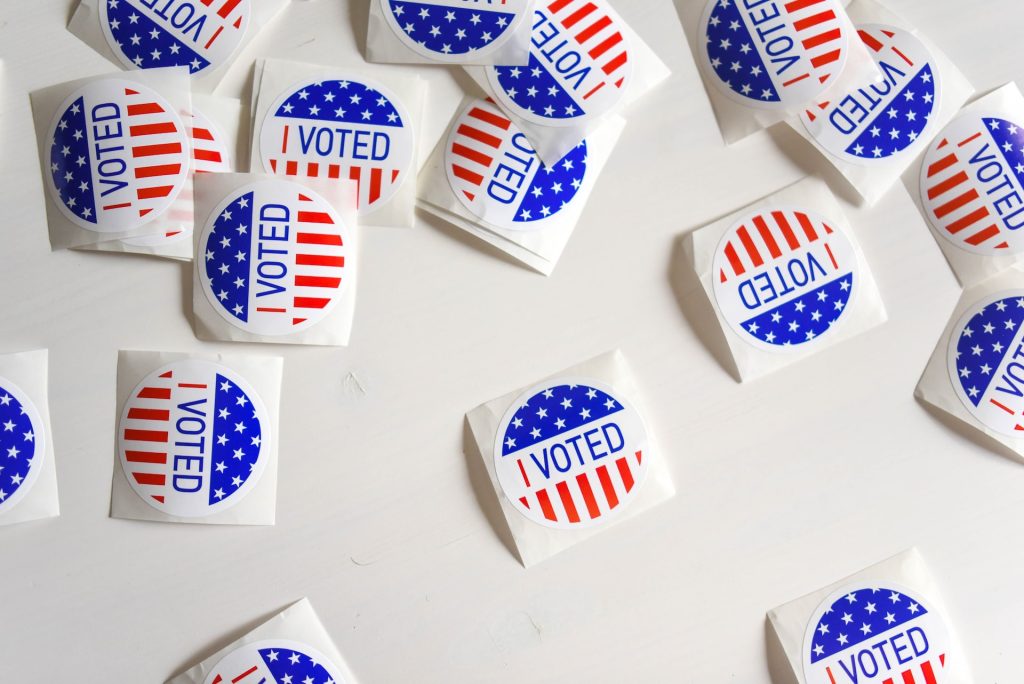Voters in Maryland and Missouri have approved cannabis legalization. The two states become the 20th and 21st U.S. states to legalize cannabis. The implementation details of specific regulations will soon follow. However, both states seem to be planning similar legislation, with Missouri leaning more towards the generous side for possession limits. Both states will expunge criminal records.
Maryland and Missouri Vote to Legalize Cannabis


Voters in Maryland and Missouri approved a referendum this Tuesday to legalize cannabis in the state. The two states become the 20th and 21st U.S. states to legalize cannabis.
For more news like this, take a moment to download our free cannabis news app.
Implementation Details to Follow in Maryland and Missouri
Now that voters have approved the measures, all that remains is the implementation of basic regulations in Maryland and Missouri.
Maryland
For Maryland, the purchase and possession of up to 1.5 ounces of cannabis (42 grams) will be legal for adults. The legislation will also remove criminal penalties for possessing up to 2.5 ounces. In addition, adults 21 and older will be allowed to grow up to two plants for personal use and to offer cannabis to friends and family without compensation.
Previous state-level convictions in Maryland for conduct made legal by the proposed law will be automatically expunged, and individuals currently in prison for such offenses will be eligible for resentencing.
The legislation provides that individuals convicted of possession with intent to distribute cannabis may petition Maryland courts for expungement three years after serving their sentence.
Missouri
In Missouri, adults 21 and older will be able to purchase and possess up to three ounces of cannabis.
They will also be able to grow up to six flowering cannabis plants, six immature plants, and six clones if they obtain a registration card.
The initiative will impose a 6 percent tax on recreational cannabis sales in Missouri. The state will use the revenue to facilitate the automatic expungement of people with certain non-violent cannabis offenses on their criminal records.
The remainder of the revenue will go toward veterans’ health care, addiction treatment, and the state’s public defense system.
Missouri Regulators will be required to issue at least 144 microbusiness licenses through a lottery system, with priority given to low-income applicants and those who have been disproportionately impacted by drug criminalization.
Existing medical cannabis dispensaries will also be the first to be able to begin serving adult consumers with a dual license.
Arkansas and North and South Dakota Rejected Legalization
Unlike Maryland and Missouri, Arkansas and North and South Dakota voters were more conservative, rejecting legalization initiatives.
However, five Texas cities have approved proposals to decriminalize cannabis.
—
(Featured image by Element5 Digital via Unsplash)
DISCLAIMER: This article was written by a third-party contributor and does not reflect the opinion of Hemp.im, its management, staff, or its associates. Please review our disclaimer for more information.
This article may include forward-looking statements. These forward-looking statements generally are identified by the words “believe,” “project,” “estimate,” “become,” “plan,” “will,” and similar expressions. These forward-looking statements involve known and unknown risks as well as uncertainties, including those discussed in the following cautionary statements and elsewhere in this article and on this site. Although the company may believe that its expectations are based on reasonable assumptions, the actual results that the company may achieve may differ materially from any forward-looking statements, which reflect the opinions of the management of the company only as of the date hereof. Additionally, please make sure to read these important disclosures.
First published in Newsweed, a third-party contributor translated and adapted the article from the original. In case of discrepancy, the original will prevail.
Although we made reasonable efforts to provide accurate translations, some parts may be incorrect. Hemp.im assumes no responsibility for errors, omissions or ambiguities in the translations provided on this website. Any person or entity relying on translated content does so at their own risk. Hemp.im is not responsible for losses caused by such reliance on the accuracy or reliability of translated information. If you wish to report an error or inaccuracy in the translation, we encourage you to contact us.



Comments are closed for this post.